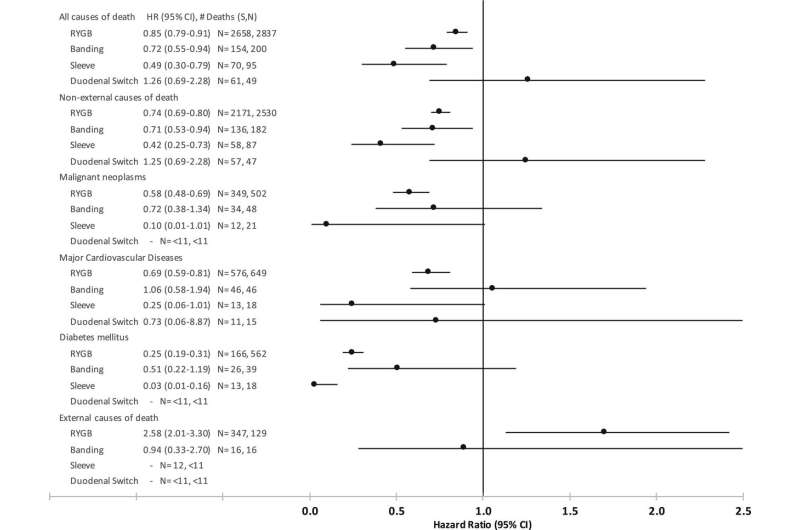This article has been reviewed according to Science X's editorial process and policies. Editors have highlighted the following attributes while ensuring the content's credibility:
fact-checked
peer-reviewed publication
proofread
What really works for weight loss?

As a popular diabetes drug takes social media by storm as a quick fix for weight loss, experts warn, not only is there no magic pill when it comes to losing weight, but this off-label use can actually backfire, possibly doubling the weight that was lost, once the medication is stopped.
According to the National Institute of Health, more than 2 in 5 adults are obese. With obesity linked to a number of diseases, including diabetes, heart disease, stroke, and cancers including breast and colorectal, these statistics are a major cause for concern.
But there is hope according to a new study published in the journal Obesity that found people with severe obesity, who underwent bariatric surgery, were significantly less likely to die from heart disease, diabetes, or cancer, compared with people with severe obesity who didn't have the surgery.
"Bariatric surgery alters the digestive system to help people lose weight," explains Dr. Hans Schmidt, chief, Bariatric Surgery at Hackensack University Medical Center. "The benefits of bariatric surgery can far outweigh the possibility of any complications."
Dr. Schmidt says when multiple attempts at weight loss fail, bariatric surgery is often the best option because it actually reduces the stomach's storage capacity, limiting food intake to help people feel full, faster.
Nobody knows this better than 38 year old Alex Monteleone, a detective with the Palisades Park Police Department, who underwent bariatric surgery in 2018. Alex not only lost nearly 100 pounds, he's also no longer on the verge of diabetes or high blood pressure.
More information: Ted D. Adams et al, Long‐term all‐cause and cause‐specific mortality for four bariatric surgery procedures, Obesity (2023). DOI: 10.1002/oby.23646




















